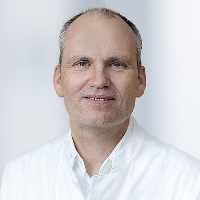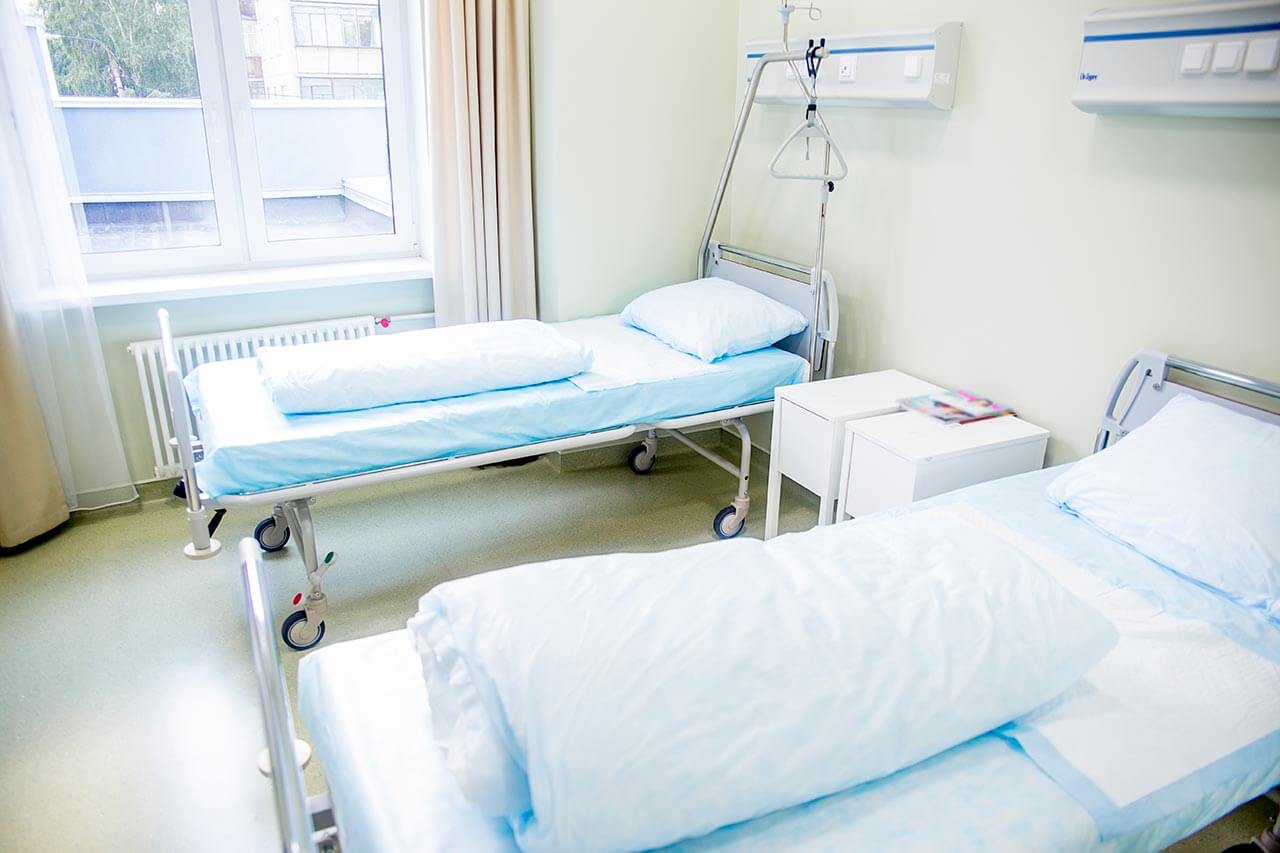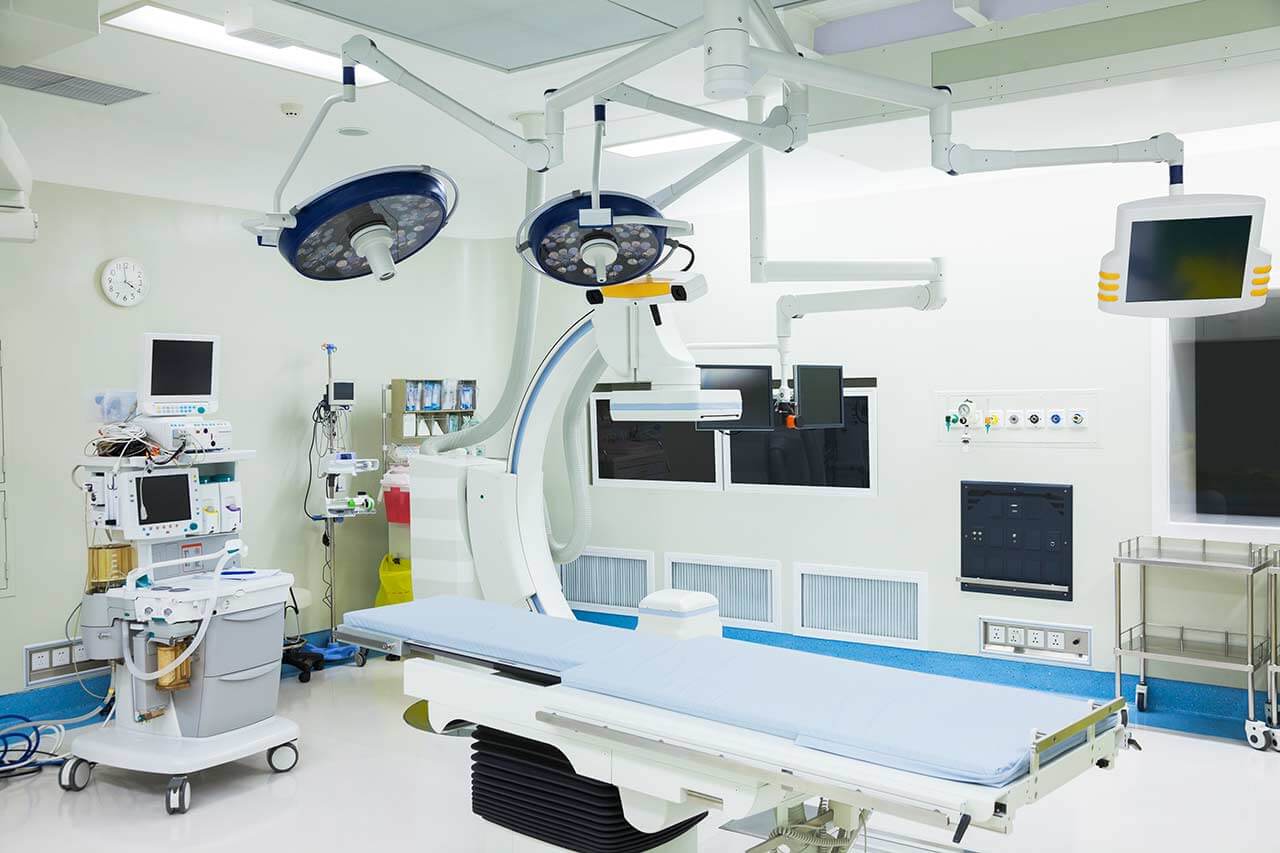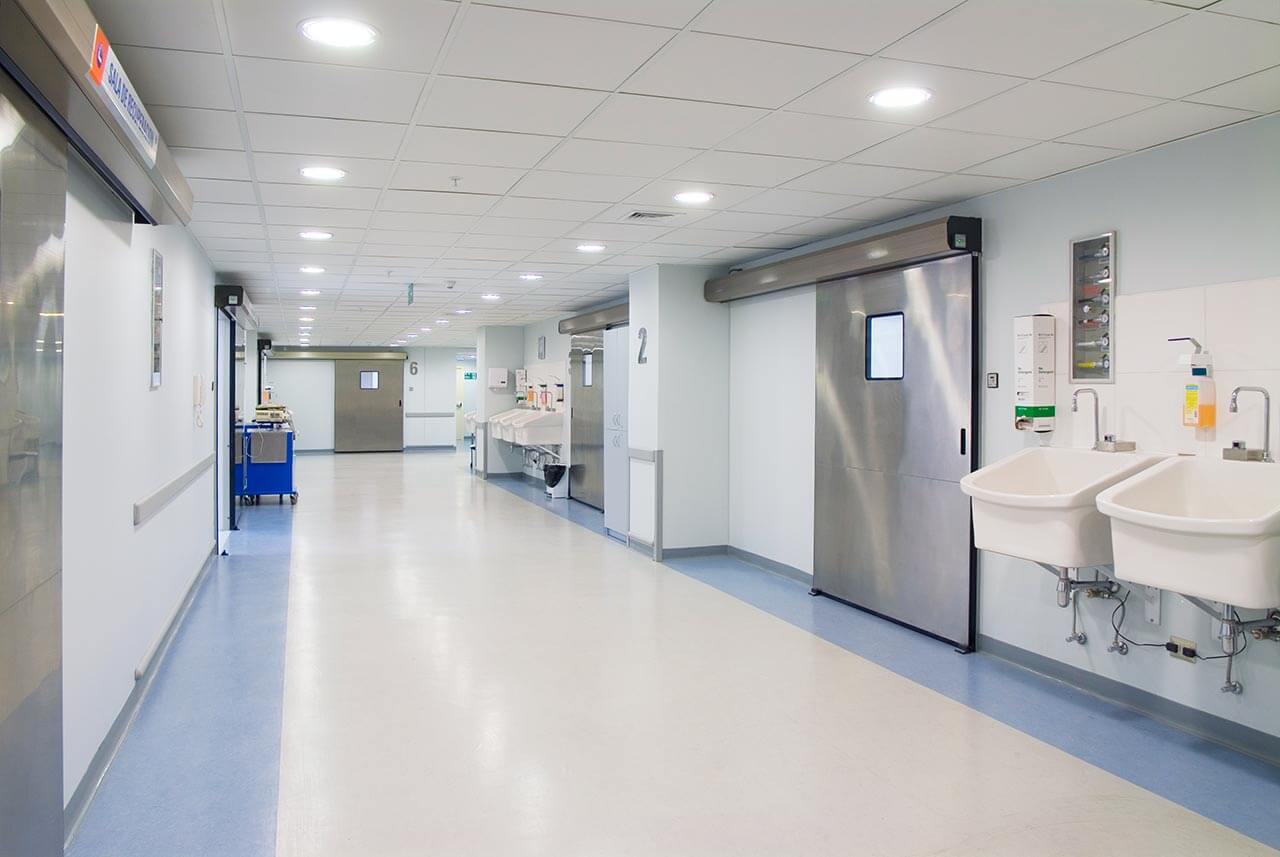
The program includes:
- Initial presentation in the clinic
- clinical history taking
- review of medical records
- physical examination
- laboratory tests:
- complete blood count
- biochemical analysis of blood
- thyroid function test (TSH-basal, fT3, fT4)
- mineral metabolism analysis (Na, K, Ca, Mg)
- lipid metabolism (HDL/LDL, cholesterol, triglycerides,
Lip(a), homocysteine) - iron content (ferritin, iron)
- blood coagulation analysis (aPTT, PT, INR)
- metabolic status (uric acid, total glucose, HbA1c)
- inflammatory parameters (CRP, ESR)
- cardiovascular disease risk markers
- vascular system assessment
- lung function test (Spirometry)
- resting and exercise ECG
- vessel elasticity measurement
- body fat and water examination
- color doppler echocardiography
- color doppler sonography of cerebral vessels
- measurement of arterial blood pressure electrocardiogram
- Holter monitoring (24h)
- preparation according to preoperative standard
- dual chamber ICD implantation
- symptomatic treatment
- control examinations
- the cost of essential medicines and materials
- nursing services
- full hospital accommodation
- explanation of future recommendations
Required documents
- Medical records
- Echocardiography (if available)
Service
You may also book:
 BookingHealth Price from:
BookingHealth Price from:
About the department
The Department of Cardiology at the University Hospital Oldenburg provides a full range of diagnostic and therapeutic services to patients with cardiovascular diseases. The department's medical team specializes in the treatment of ischemic heart disease, heart failure, heart rhythm disturbances, aortic and mitral regurgitation, inflammatory heart diseases (myocarditis and pericarditis), cardiomyopathies, and other heart pathologies. The department has 59 beds and 6 beds in the intensive care unit. The pride of the medical facility is its advanced technical base: there are 4 cardiac catheterization laboratories, 3 echocardiography laboratories, and angiography rooms (MR angiography can also be performed in cooperation with the Department of Radiology). The therapeutic offer of the department includes drug therapy and catheter-based procedures. The medical services provided by the department are in accordance with the current clinical protocols and recommendations of the German Society of Cardiology (DGK), which contributes to the high success rates of treatment. The Head Physician of the department is Prof. Dr. med. Albrecht Elsässer.
The main focus of the department is the catheter-based diagnosis and treatment of cardiovascular diseases. Coronary angiography is a minimally invasive method of examining the heart's blood vessels, in which a special thin catheter is inserted into the radial or femoral artery and guided to the heart under X-ray guidance. A contrast agent is injected through the catheter, which fills the coronary arteries and allows the nature, location, and degree of narrowing of the coronary artery to be determined with high accuracy. Coronary angiography is the most informative diagnostic tool for suspected coronary artery disease. Its results are used to determine the most effective treatment tactics for the patient. The procedure is performed under local anesthesia and is completely painless.
Therapeutic interventional procedures are also performed in the department's cardiac catheterization laboratories. One of the most popular catheter-based procedures is percutaneous transluminal coronary angioplasty (PTCA) with stenting. This procedure is an effective alternative to traumatic surgery for the treatment of coronary artery stenoses and obstruction. PTCA is performed under local anesthesia and X-ray guidance. In the first step of the procedure, a long, flexible catheter with a balloon attached is introduced into the lumen of the narrowed coronary artery. The balloon is then inflated to restore normal blood flow in the coronary artery. The final stage of the catheter-based procedure is the implantation of a stent to prevent recurrent occlusion.
The department's team of cardiologists also skillfully treats aortic regurgitation using an innovative, sparing method of transcatheter aortic valve implantation (TAVI). The main advantage of this procedure is its low trauma rate. TAVI eliminates the need for sternotomy and the use of a heart-lung machine. The patient's own aortic valve is not removed, but is covered with a prosthesis that is delivered to the target area through a special folded catheter. In most cases, the TAVI procedure is performed through a small puncture in the femoral artery in the groin. Transcatheter aortic valve implantation is a highly effective and safe procedure. It is ideal for patients with comorbidities who are at high risk for open aortic valve surgery.
The department's range of medical services includes the following:
- Diagnostic services
- Echocardiography
- Transthoracic echocardiography
- Transesophageal echocardiography
- Stress echocardiography
- Contrast-enhanced echocardiography
- Electrophysiological studies
- Electrocardiography
- 24-hour Holter monitoring
- 24-hour blood pressure monitoring
- Magnetic resonance imaging of the heart
- Coronary angiography
- Angiography, including MR angiography and digital subtraction angiography
- Vascular Doppler ultrasonography
- Color-coded duplex sonography
- Echocardiography
- Therapeutic services
- Drug therapy
- Electrical cardioversion
- Catheter-based interventional procedures
- Percutaneous transluminal coronary angioplasty (PTCA) with stenting
- Transcatheter aortic valve implantation (TAVI)
- MitraClip procedure for mitral regurgitation
- Transcatheter left atrial appendage closure
- Radiofrequency catheter ablation
- Cardiac resynchronization therapy
- Transcatheter placement of implantable cardioverter-defibrillators
- Puncture epicardial ablation
- Balloon valvuloplasty for aortic and mitral valve stenosis
- Other diagnostic and treatment methods
Curriculum vitae
Prof. Dr. med. Albrecht Elsässer has been the Head Physician of the Department of Cardiology at the University Hospital Oldenburg since 2008. Prior to this appointment, the doctor held positions at the University Hospital Freiburg, the Kerckhoff Clinic, and the Max Planck Institute for Heart and Lung Research in Bad Nauheim. Prof. Elsässer graduated from the Heidelberg University and the University of Mainz.
Dr. Albrecht Elsässer's clinical focus is on the interventional treatment of vascular lesions and valvular disease, as well as the treatment of other cardiovascular diseases such as acute coronary syndrome and heart failure. His research interests include vascular and myocardial diseases.
Prof. Elsässer is a member of the board of directors of the German Cardiac Society (DGK), responsible for the continuing education program of the Academy of the German Cardiac Society (DGK-Akademie), and a representative of the Working Group on Interventional Cardiology (AGIK). He is also a reviewer at the Federal Ministry of Education and Research.
Photo of the doctor: (c) Klinikum Oldenburg AöR
About hospital
The University Hospital Oldenburg is a multidisciplinary medical complex offering top-notch services of the European standard. The hospital has 20 specialized departments, 15 highly specialized centers, and more than 10 institutes. The hospital provides services in almost all areas of modern medicine: general and abdominal surgery, cardiac surgery, orthopedics, traumatology, cardiology, oncology, dermatology, gastroenterology, gynecology, mammology, urology, and pediatric and adolescent medicine.
The hospital has 832 beds, and many diagnostic and therapeutic procedures are performed on an outpatient basis. More than 150,000 patients are treated here annually, 37,000 of them receive medical care in a hospital setting. The medical complex has a highly professional medical team of more than 2,900 employees and most departments are headed by professors with extensive clinical experience.
The hospital is home to one of the best comprehensive cancer centers in Germany (Nordwestdeutsches Tumorzentrum), certified according to the requirements of the German Cancer Society (DKG). The center successfully treats breast cancer, prostate cancer, colorectal cancer, pancreatic cancer, esophageal cancer, head and neck tumors, skin tumors, and other oncological diseases. The center uses modern cancer treatment methods with proven effectiveness and also offers allogeneic and autologous bone marrow transplantation for the treatment of severe hematologic diseases (European certification JACIE).
The University Hospital Oldenburg is an expert medical facility in robotic surgery. The hospital has a specialized da Vinci Surgery Center, where gastrointestinal, urological, and gynecological diseases are treated with excellence. Patients are operated on by highly qualified professors with in-depth expertise and extensive experience in robotic surgery.
The University Hospital Oldenburg is one of the leading medical institutions in Germany because it offers excellent medical and technical resources, qualified personnel, and a comfortable infrastructure designed with the needs of patients in mind. The hospital's physicians treat patients with complex clinical cases and achieve incredible results.
The basis of medical care in the hospital is humane attitude to the patient, empathy and understanding of his needs. During the therapeutic process, the patient is surrounded by care and, if necessary, receives professional psychological support.
Photo: (с) depositphotos
Accommodation in hospital
Patients rooms
The patients at the University Hospital Oldenburg stay in comfortable single, double, and triple rooms. Each patient room has an ensuite bathroom with a toilet and a shower. The patient rooms have a TV, a telephone, and Wi-Fi. The patient rooms in the pediatric departments are designed in an appropriate interior to make the young patients feel as comfortable as possible. A child can stay in the same room with one of the parents.
The hospital has an excellent infrastructure: there is a pharmacy, a hairdresser, an ATM, and a library with audio books, DVD movies, and board games.
Meals and Menus
The hospital offers delicious and balanced meals three times a day: breakfast, lunch, and dinner. Since 2022, a new menu "Vitalessen" has been introduced here, which excludes the addition of preservatives, dyes, and flavor enhancers to food. The menu takes into account all preferences and wishes of the patients.
There is also a cozy cafe in the hospital, where you can enjoy a tasty snack or a cup of aromatic coffee or hot tea with dessert.
Further details
Standard rooms include:
![]() Toilet
Toilet
![]() Shower
Shower
![]() Wi-Fi
Wi-Fi
![]() TV
TV
Religion
There is a chapel on the ground floor of the hospital where Catholic and Evangelical services are held regularly. Services by representatives of other religions are available upon request.
Accompanying person
Your accompanying person may stay with you in your patient room or at the hotel of your choice during the inpatient program.
Hotel
You may stay at the hotel of your choice during the outpatient program. Our managers will support you for selecting the best option.




